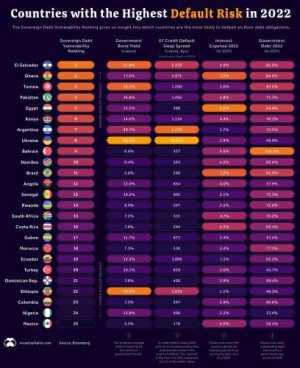Auto industry fears massive drop in sales
KARACHI: Auto industry players anticipate a 30 per cent sales drop in 2022-23 in view of uncertainty after the increase in withholding tax on filers and non-filers, imposition of one per cent capital value tax on vehicles exceeding 1,300cc, strict auto financing rules to compress demand, high interest rates and more price shocks on the cards.
Speaking to Dawn, market sources said assemblers are also flexing their muscles to pass on the impact of the continuous rupee devaluation against the dollar and high sea freight rates in the form of price hikes in vehicles after Eidul Azha, with many stressing that the industry is passing through a crisis.
Indus Motor Company (IMC) has already closed down the advance booking of vehicles from May 18, followed by Lucky Motor Corporation Limited (LMCL) from May 20 on Picanto Automatic and Sportage and Pak Suzuki Motor Company Limited (PSMCL) from July 1.
These decisions were taken by the assemblers owing to looming exchange crisis and the SBP’s decision to disallow the opening of letters of credit (LCs) for the import of parts and accessories from May 20, 2022.
New taxes, curbs on auto financing, soaring fuel prices cause anxiety among buyers
Talking to Dawn, IMC CEO Ali Asghar Jamali anticipates at least a 30pc plunge in vehicle sales in FY23 due to rising fuel prices, SBP’s restrictions on opening LCs for auto parts and new taxes imposed from July 1.
On the chances of a price increase after Eid, Mr Jamali said, “We have to jack up prices. No [other] choice.”
According to auto industry insiders, the impact of increase in various taxes, soaring interest rates, vehicle prices, high petrol and diesel prices, LC restrictions, and reduction in consumer financing tenure will be visible in September 2022 vehicle sales data, as assemblers are currently upbeat over thousands of advance booking orders for cars, jeeps, SUVs, and pickup made a few months ago and would be delivered in the next few months.
Around 26pc of total sales of IMC are from auto financing, while the share of consumer financing in total sales of Pak Suzuki stands at 35pc.
Fearing a 25-30pc sales fall in FY23, a Korean vehicle assembler said the company has not increased the prices of Kia vehicles. Some changes have emerged after the Finance Act relating to the implementation of 1pc CVT on vehicles above 1,300cc from July 1. As a result, two Kia Stonic models now have a 1pc CVT for Rs44,250-47,250, three Sportage models for Rs53,000-64,990, and three Sorento models for Rs68,360-74,990.
According to Honda Atlas Cars Limited (HACL), the 1pc CVT on the City 1.5 ranges between Rs35,890-38,990 while on two modes of the Honda BR-V, the CVT hovers between Rs42,490-42,740. The 1pc CVT on six Honda Civic models costs between Rs55,490-66,740.
On withholding tax on filers and non-filers, the HACL official said there is no change in WHT on filers in the Honda product line. However, Rs75,000 is charged for non-filers on purchasing the Honda City 1,200cc, which was Rs50,000. For the 1,301,600cc version, the rate of non-filers is Rs150,000 instead of Rs100,000.
PSMCL has informed its authorised dealers to charge Rs10,000 for Alto (all variants), Bolan and Ravi from filers, which was Rs7,500, while the non-filers will pay Rs30,000 instead of Rs15,000 on the same models.
Income tax filers interested in purchasing a WagonR or Cultus (all variants) will need to pay Rs20,000 instead of Rs15,000, while Swift buyers will pay Rs25,000.
The non-filers of Wagon R and Cultus will have to deposit Rs60,000 instead of Rs30,000, while a non-filer will make a payment of Rs75,000 instead of Rs50,000.
An Excise and Taxation Sindh official, who asked not to be named, said the motor vehicle registration charges have been the same in the last two years but the rate of WHT on filer and non-filer and CVT has been raised from July 1.
The motor registration fee payable at the time of registration for cars/jeeps not exceeding 1,000cc is 1pc of the value of the vehicle, followed by 1.25pc on 1,000-1,300cc vehicles, 2.25pc on 1,301-2,500cc vehicles, and 5pc on cars/jeeps exceeding 2,500cc.
A private bank employee dealing in the auto leasing said, “Targets to achieve auto financing are tough due to limited enquiries from the customers.”
Car sales of Pakistan Automotive Manufacturers Association members soared to 210,633 in 11MFY22 from 139,613 units in the same period last fiscal. Sale of LCVs, vans and jeeps swelled to 40,255 from 45,891 units.
DAWN







